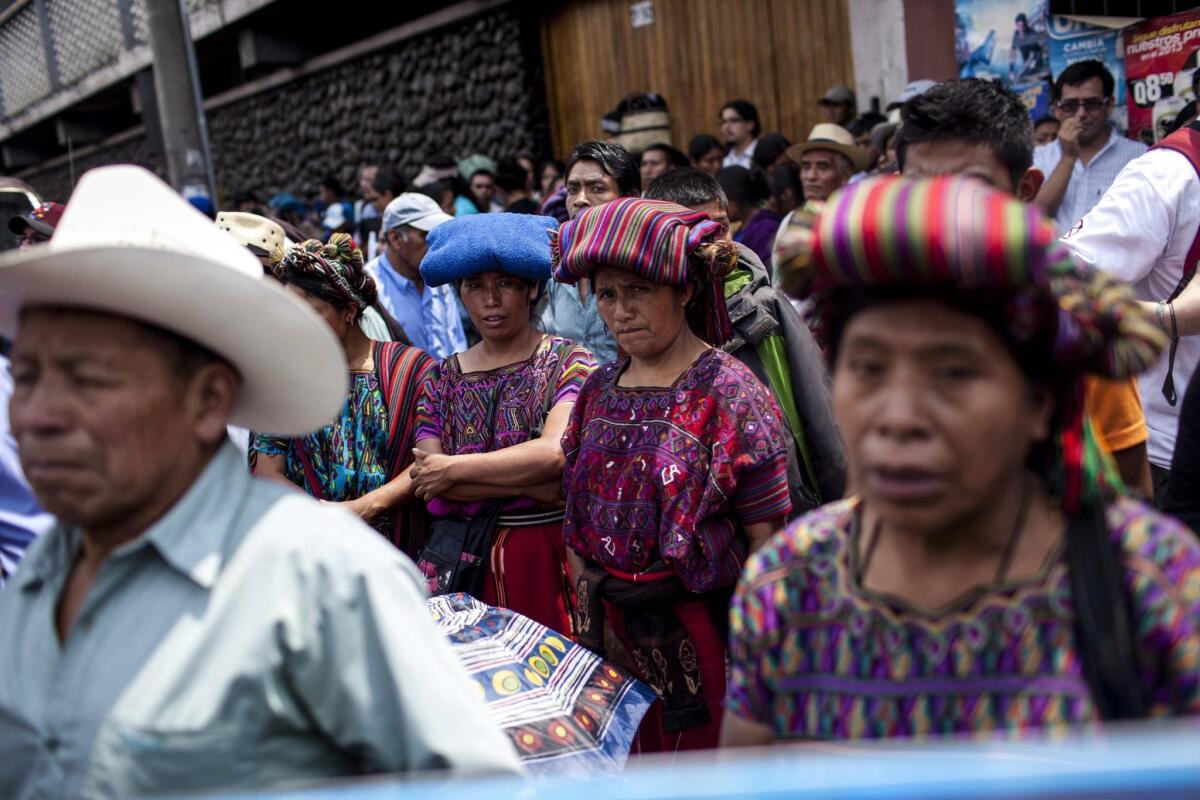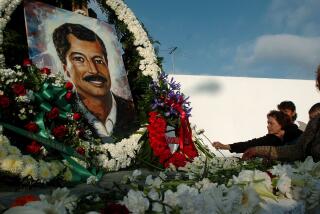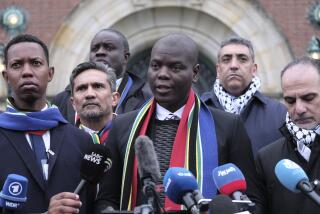Justice delayed in Guatemala

- Share via
When a Guatemalan court found the country’s former dictator, Gen. Efrain Rios Montt, guilty of genocide last month, it was the first time a Latin American leader had been convicted of such a crime in his own country. The verdict was hailed as a victory not only for Guatemala’s fragile courts but also for Latin America generally, where weak judges and fearful prosecutors have all too often failed to bring human rights abusers to justice.
That triumph, however, is now at risk. Just days after Rios Montt was convicted, the trial court’s verdict was thrown out on a procedural technicality by the country’s Constitutional Court, which ordered the lower court to rehear all evidence presented after April 19, when the procedural mistake occurred.
Going back two months in time would be hard enough. But now, prosecutors are facing an additional hurdle. Today, the high court will consider whether the former dictator may indeed be tried at all, or whether he should be shielded from prosecution under a 1986 amnesty law.
Rios Montt seized power in 1982 in a military coup. He stayed in office for 17 months with the support of the United States. During that time, he presided over what is widely considered one of the most brutal chapters in the country’s 36-year conflict with Marxist rebels, sending troops into the Mayan highlands where they raped, tortured and killed unarmed men, women and children accused of colluding with the rebels. Among the worst of the massacres took place at Dos Erres, where more than 200 civilians were killed and their bodies thrown into the village well.
Obviously, Rios Montt’s defense attorneys have a right to demand that their client be granted due process under law. Unfortunately, the Constitutional Court’s role in the case thus far has furthered neither the ex-dictator’s rights nor those of victims. Instead, by ordering the proceedings to restart mid-trial, it has essentially cast the case into limbo. The trial court judges announced that they had already issued a verdict and recused themselves from any further proceedings. Lawyers for both sides are unsure how to proceed. And there are serious questions about whether the survivors who bravely stepped forward to testify against Rios Montt in the first run-through of the trial will do so again in the event of a do-over.
The Constitutional Court shouldn’t allow the case to languish any longer than it already has. That would be a setback to justice. The judges should move swiftly to provide a clear and transparent ruling that sets out how a new trial can proceed. They should do what’s necessary to protect the rights of the defendant, but they should not allow this historic case to be unnecessarily prolonged or obstructed. And they should remember that under both Guatemalan law and international law, there can be no immunity from genocide.
More to Read
A cure for the common opinion
Get thought-provoking perspectives with our weekly newsletter.
You may occasionally receive promotional content from the Los Angeles Times.






